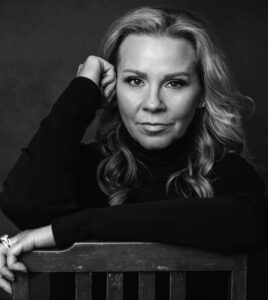When my son Christopher passed away from opioid addiction, my world shattered. His struggle began with legally prescribed pain medication after surgeries and hospital stays. Unfortunately, his story is not a unique one. Every day, 224 Americans die from opioid overdoses. In 2023 alone, more than 125 million opioid prescriptions were written in the United States. That’s nearly 38 prescriptions for every 100 people. Despite ongoing lawsuits against pharmaceutical manufacturers and billion-dollar settlements, the opioid epidemic continues to devastate families across the country.
From that grief came my purpose and the vision behind CWC Alliance. We created the Life Care Specialist (LCS) to intervene at the critical moment that failed Christopher, right at a patient’s bedside during hospitalization.
In 2023, when Harvard Business School (HBS) selected CWC Alliance and the LCS position as the focus of their case study series, it was validation that our work is helping save lives. HBS’s decision to study our model in-depth took our mission and positioned it as a scalable solution in the fight against opioid misuse.
The HBS case study specifically follows our partnership with Grady Hospital in Atlanta, showing how Life Care Specialists can be especially impactful in trauma centers and underserved communities. When we first launched our pilot at Grady in 2020, the results exceeded our hopes: 99% of patients supported by an LCS reported improved pain management. Encouraged by these early outcomes, we expanded into a randomized controlled trial, resulting in a 25% reduction in opioid use for patients with access to a Life Care Specialist.
A few weeks ago, I was invited back to Harvard Business School to present an update on CWC Alliance and the LCS role. At the time the case study began, we faced quite a few challenges, including finding consistent and reliable funding. However, this challenge has been overcome thanks to access to opioid resettlement funds. Now, CWC Alliance recruits LCSs directly and manages them on behalf of participating hospitals. This job permanency, coupled with the warm receptions of the LCSs, has opened another door: access to medical records. When our staff began their work, they were unable to view hospital or patient information. By gaining the ability to log into these records, LCSs now receive direct consult requests, allowing a streamlined process for requesting their services.
Despite our progress, our work is far from over. Ultimately, our goal is to leverage the LCS role to help establish a protocol that will reduce prescribing — and overprescribing — of opioids in every healthcare setting. Funding-wise, we hope to build the case for the creation of a billing code for LCS services, making the model reimbursable through insurance.
We are incredibly grateful to Harvard Business School for their support of our mission. Moving forward, HBS plans to continue following our journey through additional case studies and helping us identify strategies for nationwide expansion.


